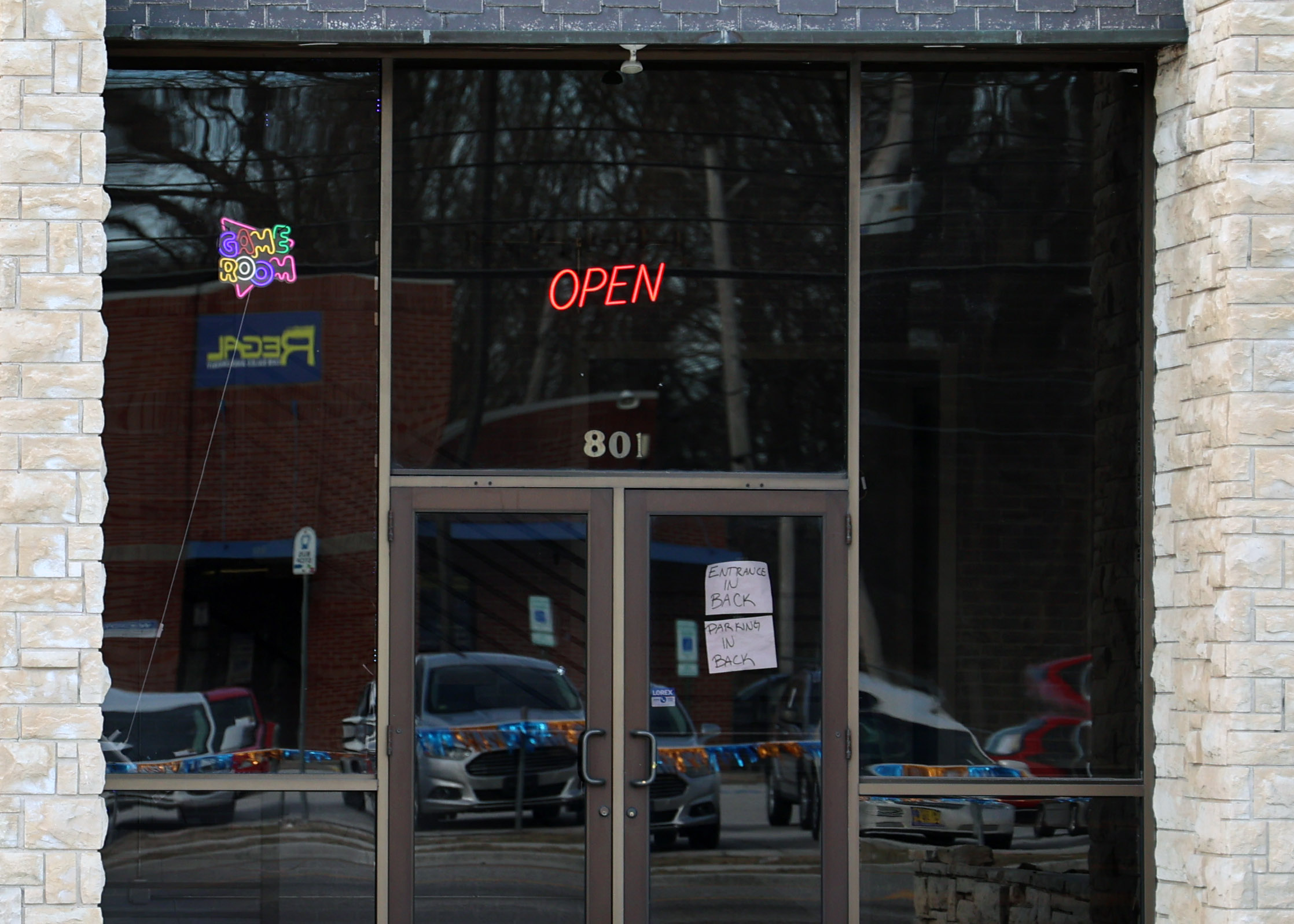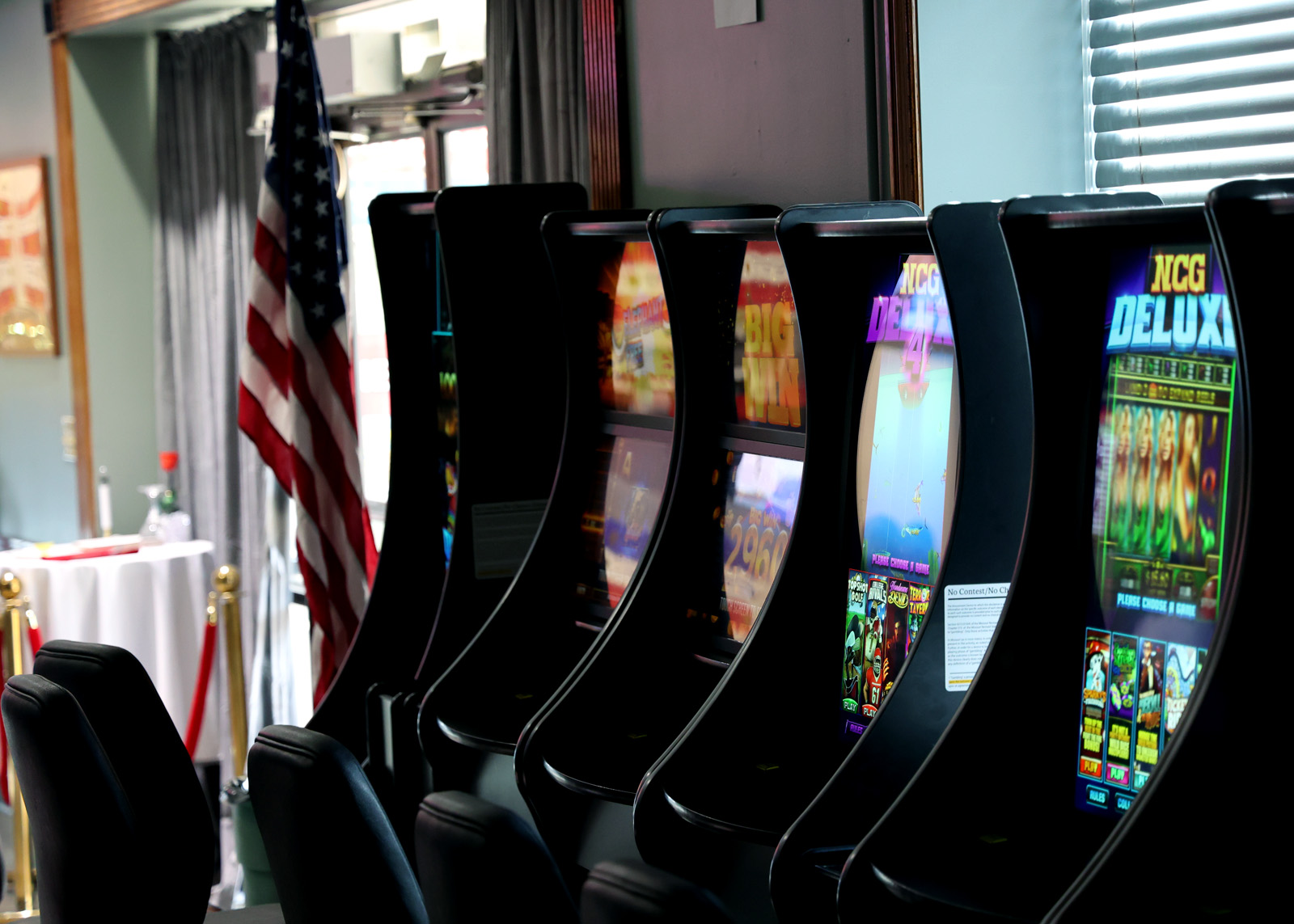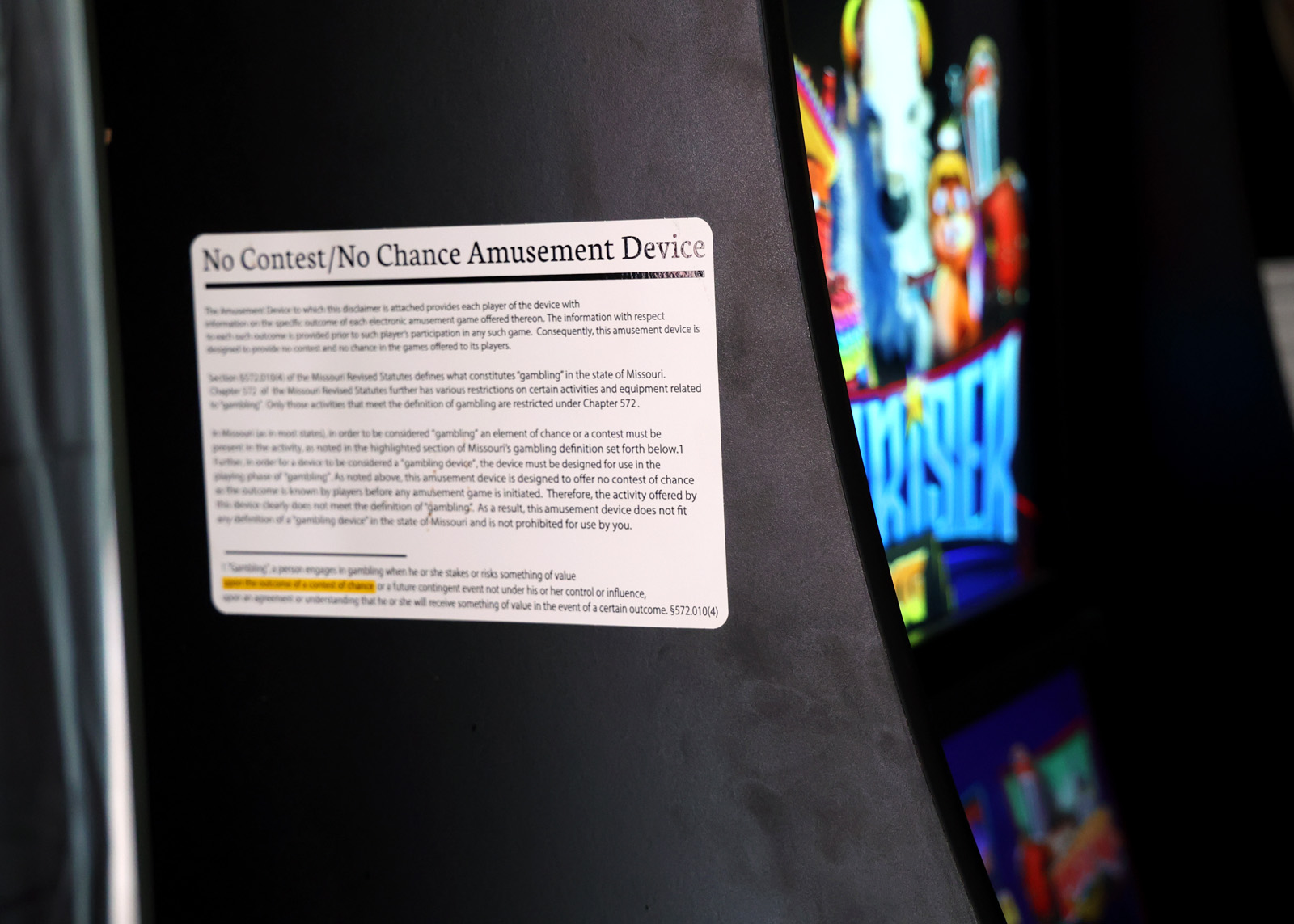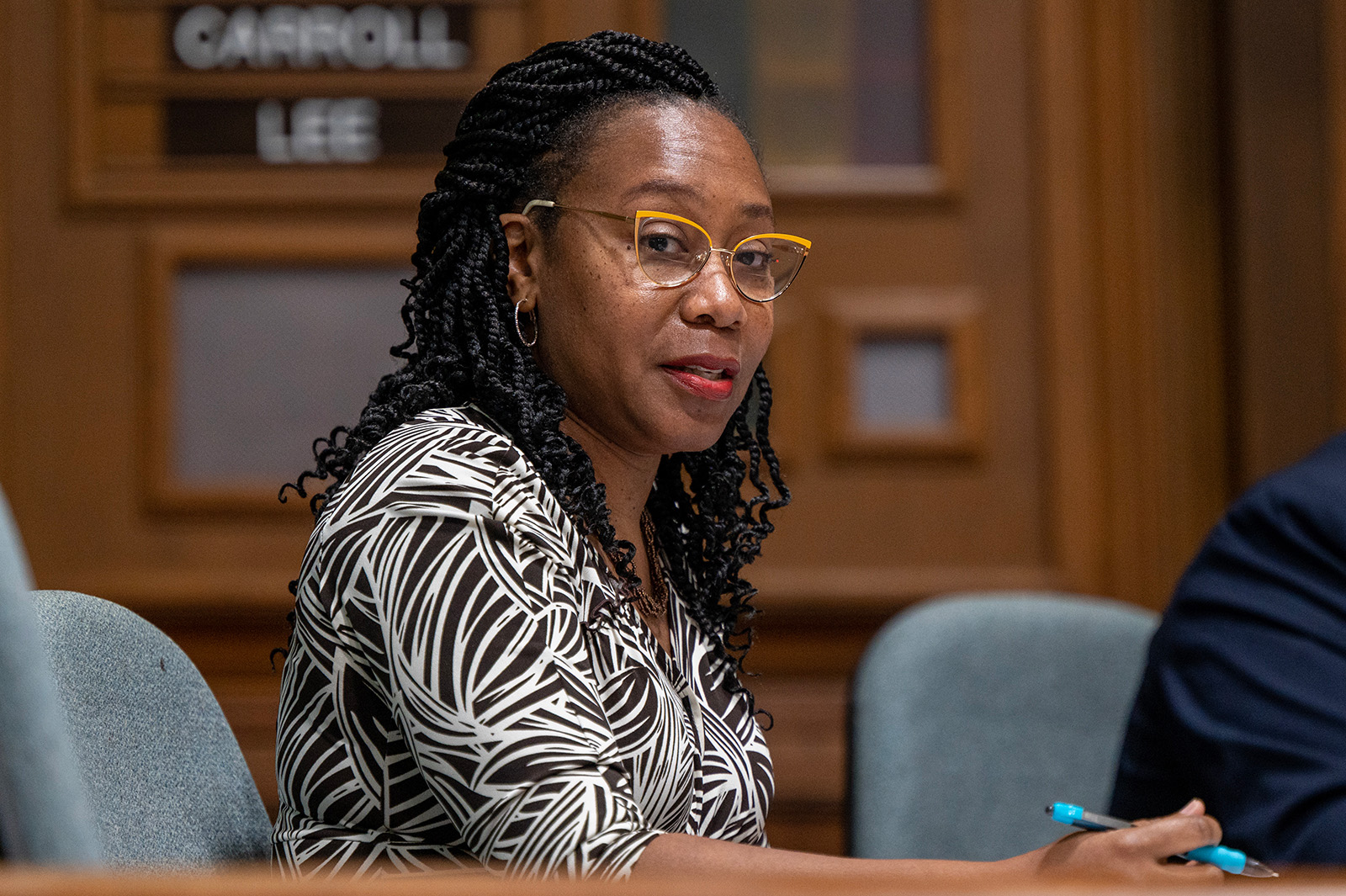Video lottery terminals have been given the boot from Springfield — so long as financial prizes are involved.
The Springfield City Council unanimously approved an ordinance at its Feb. 12 meeting prohibiting the operation of entertainment devices offering monetary prizes, effectively banning video lottery terminals (VLTs). They're also known as “no-chance” games or gray machines. In addition to the stand-alone game rooms that have sprouted up around Springfield in recent years, the devices can be found in gas stations, bars and private clubs.
While some city council members expressed concern over unintended consequences that may come as a result of the ban, concern with the commonly accepted harm the machines inflict weighed heavily in the 9-0 vote.
“What we have witnessed is the harm to public health, safety and welfare caused by these devices, including direct and significant negative impact on adjoining businesses and properties, blight and property devaluation, crime, poverty and addiction,” Mayor Ken McClure said at the meeting.
Ordinance doesn’t target traditional arcades, eSports

While the legislation effectively targets VLTs, the ordinance prohibits the operation of any entertainment devices that offer monetary prizes, which could come in the form of cash, check, bank transfer, negotiable instrument, store credit, gift card or anything redeemable for monetary prizes.
The ordinance establishes penalties for violations, with each device maintained considered an individual offense. A violator would be subject to a minimum fine of $500 for the first offense, $1,000 for the second offense, and $1,000 and a minimum of 30 days in jail for the third.
The passage of the bill added a new section to the Springfield City Code, which reads, in part:
“No person shall maintain or offer for use by any person any entertainment device that offers a monetary prize to any person regardless of the frequency with which a monetary prize is conferred or the odds of any individual user realizing a monetary prize.”
This language of the ordinance had General Councilmember Craig Hosmer worried that it would fortuitously target family-geared arcades like Chuck E. Cheese and Incredible Pizza, as well as eSports tournaments that award cash prizes.
Christopher Hoeman, chief litigator for the Springfield city government, said eSports prizes are exempt from the ordinance, because prizes aren’t awarded via machines, and that the new ban would only prohibit traditional arcades from offering gift cards.
City Manager Jason Gage noted that if a form of gaming surfaces that is unintentionally subject to the ordinance, the City Council could consider an amendment to the code.
How VLTs differ from slot machines

The nickname of “gray machine” alludes to their position in a legal gray area — the devices aren’t explicitly legal or illegal under state law. Missouri legislators have debated VLTs for years, but efforts to formally legalize and regulate the devices have thus far been unsuccessful.
Some members of the Springfield City Council would prefer the machines be defined as “illegal gambling devices under state law.” McClure said the lack of guidance or support from the Missouri General Assembly made it necessary for Springfield to act.
Zone 1 Councilmember Monica Horton, who co-sponsored the bill with Zone 4 Councilmember Matthew Simpson, said she conceded her position to do anything to put an end to VLTs even as the state legislature failed to do so, but the publicity of a particular game room in the Plaza Shopping Center provided an opportunity to address the issue in Springfield.
“I cannot continue to accept ‘We can't do anything about VLTs’ as an answer,” Horton said.
Unlike a traditional slot machine, VLTs have a pre-reveal function that allows a player to see the result of a spin before making a bet. In order to see the result of the next spin, however, players need to put money on the current play, even if they know it’s a $0 payout.
Hoeman said that the Springfield Police Department would begin enforcing the ordinance on Feb. 13 by alerting establishments that operate VLTs of the new ban, and following up with them to ensure it’s being complied with.
Hosmer, while supportive of the ban, suggested that government staff consider using the city’s nuisance statutes to shut down some locations that operate VLTs, because he fears the city is “probably going to be in court on this ordinance.”
Problem with VLTs “inherent to the operation of the machines”

During the Jan. 22 public hearing on the council bill, a majority of speakers voiced concerns with the machines and attested to their negative impact on the community, while a handful of others representing gas stations, veteran halls and other organizations asked for a more tailored approach.
Advocates of the ban argued VLTs prey on disadvantaged communities and attract criminal activity, harming surrounding businesses and neighborhoods. Critics of the measure suggested that stand-alone gaming lounges were the crux of the problem, and that other types of businesses should be allowed to continue operating VLTs.

Simpson said the problem is “inherent to the operation of the machines” and that issues arise from different types of businesses that host VLTs — not just stand-alone game rooms.
“I understand the concern not to lose revenue, and that’s certainly not a goal of ours, to take away revenue from local businesses,” Simpson said. “But I think it's very noteworthy that, even in the comments we received in opposition to this particular bill, they almost universally supported the goal of the bill and recognize the problem with these machines.”
Zone 3 Councilmember Brandon Jenson also showed concern for “good businesses,” such as veteran-serving nonprofits, that will be impacted by the ordinance, but said the problems VLTs pose are “too immediate for us to delay any longer.”
“Past legislation passed by this council has been called a mistake for being too specific, but it's my hope that this legislation does not prove to be too broad,” Jenson said.

Jenson also agrees with concerns that the government shouldn’t stop people from making their own choices, but contended that it was their responsibility to step in “when those personal choices have an overflow impact that impacts our society at large.”
Horton said residents in Zone 1, which encompasses the northwest corner of Springfield, have been “overrun with every imaginable negative variable” associated with VLTs and that her support of the bill was without hesitation.
“If you were to ask me to choose between an unregulated consumer product with unreliable monetary payouts over economic vitality, neighborhood revitalization, quality of place and public safety, I would choose the latter every single time,” Horton said.

